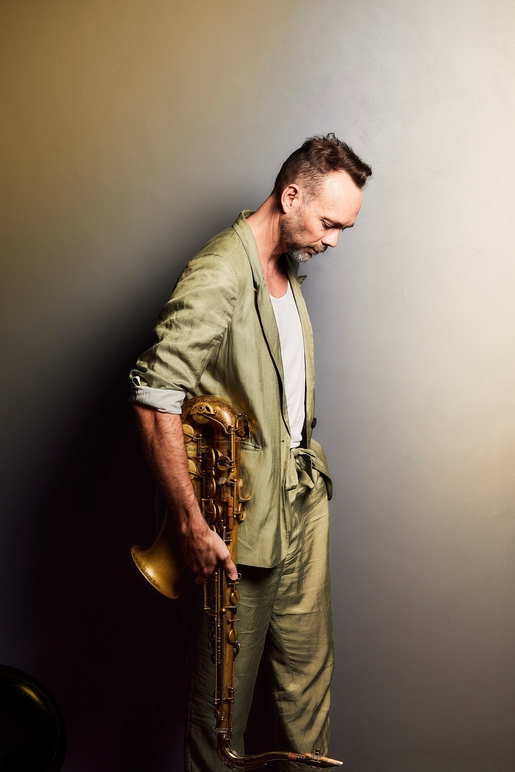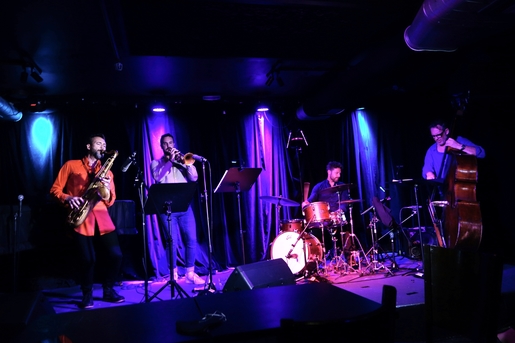Foundry 616, February 3
8/10
Here we were, stepping into the TARDIS and whooshing back three decades to a time when Australia’s most incendiary musician recorded his only album (aided by three brilliant colleagues), appropriately called Fire. Saxophonist Mark Simmonds died in 2020, the pandemic preventing any musical celebration of his life. Now fellow saxophonist Matt Ottignon provided it by revisiting Fire’s compositions.

This was no exercise in nostalgia, but rather a counterattack on the creeping cultural amnesia that besets this nation, whereby our greatest artists’ work can fade from the collective consciousness within a generation. Who knows why no one’s attempted this project before, because the compositions are as singular as was Simmonds’ playing. It might reflect apathy, a preference for mediocre originality over paying tribute to genius, or just people shying from Simmonds’ rhythmic challenges.
Ottignon assembled a bristling band to confront this material head-on and investigate it afresh, his own sprawling tenor saxophone joined by Tom Avgenicos’s spiky trumpet, Jonathan Zwartz’s double bass and James Hauptmann’s drums. Together they invested the music with their own thrilling energy, even if you were not left as emotionally bruised and lacerated as by Simmonds, whose intensity was like that of one possessed. Ottignon was immediately incandescent on The Spotted Dog, and the band excavated the deep mystery of Afghanistan, which gradually turned the rhythm section into a furnace and the trumpet notes into so many drops of molten glass.

Part of Simmonds’ magic was combining New Orleans-inflected rhythms with pre-bebop sounds and post-bop ideas, and all this was in constant play. The Jazz Waltz had a spiralling madness like taking psychedelic drugs at Luna Park, with ferocious drumming from Hauptmann, who had all the rhythmic complexities down pat, and combined with Zwartz to create phenomenal drive every time they were let off the leash. The latter crafted a stunningly inventive solo on Paradise Blues, a piece which also spawned Avgenicos’s grittiest playing, before Ottignon’s tenor became as dangerous as a wrecking-ball.
By contrast the ending to Virtue had a porcelain-doll fragility, and Bird-s-Hit was about as jubilant as music gets. They finished with Bernstein’s Somewhere, the tenor exquisitely lyrical as the band converged on that odd blend of optimism, sadness and yearning. I attended several concerts with Simmonds after he’d stopped performing. He’d have cried tears of joy.